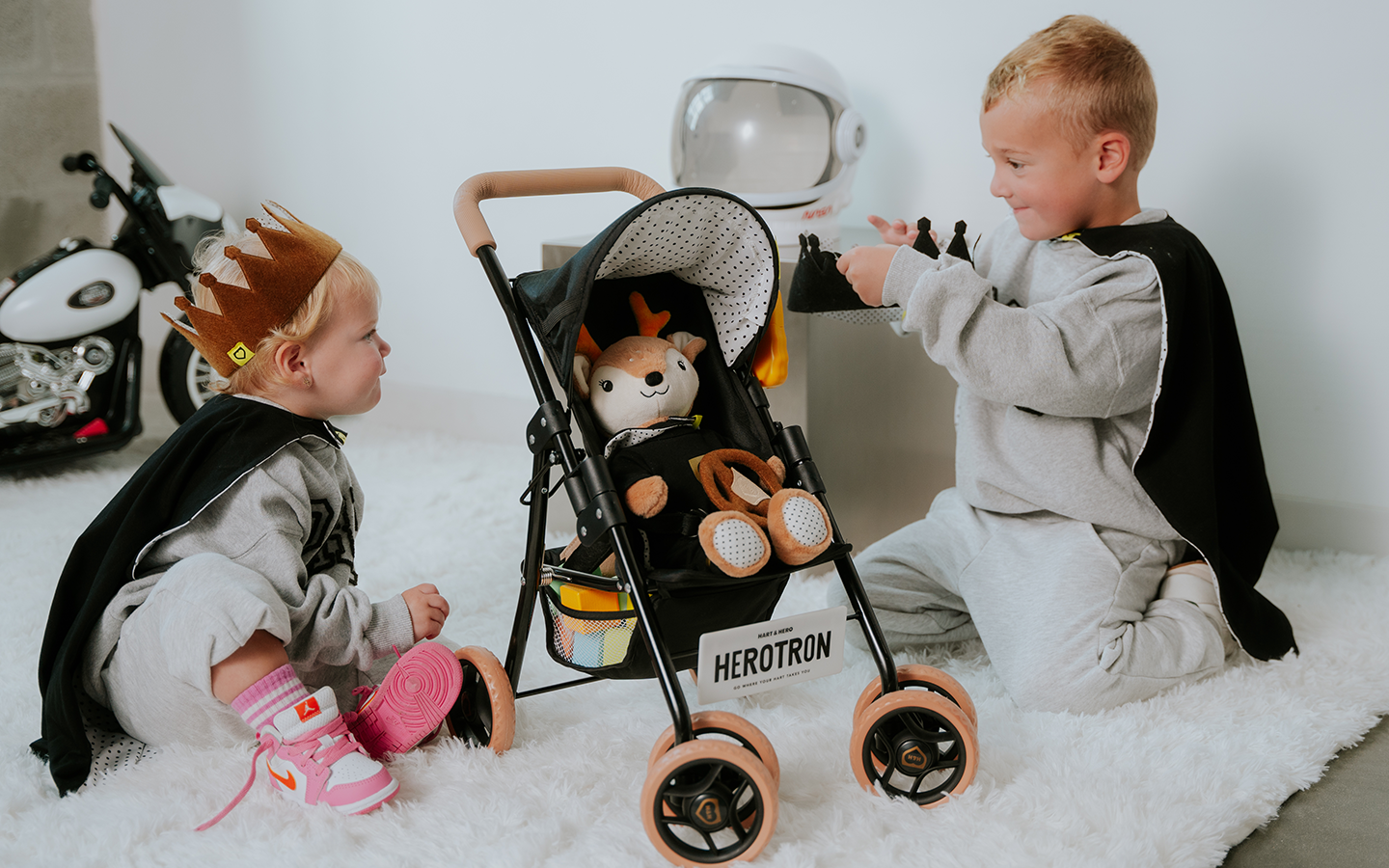At just three years old, Zach and Zoe are at the heart of their imaginative adventures, each carving out their own play experiences that reflect the world around them. Their play is more than just fun—it’s shaping the skills they’ll carry into adulthood. Let’s dive into their worlds and see how their play influences their development and future roles.
Zach’s Play World
Zach is a bundle of energy, always on the move and eager for action. His favorite toys are trucks, dinosaurs, and superhero figures. Whether he's zooming trucks across the floor or staging dramatic dinosaur showdowns, Zach’s play is all about excitement and adventure. His playtime is filled with roaring engines and daring rescues, where he often imagines himself as the hero saving the day.
In his world, Zach is developing essential skills like problem-solving and coordination. He’s learning how to navigate challenges, make decisions on the fly, and use his imagination to create exciting scenarios. But there’s a catch: Zach’s play reinforces the idea that action and leadership are inherently male traits. The message he’s absorbing is that nurturing roles and family life are not for him, even though they are crucial aspects of life for everyone.
Zoe’s Play World
Meanwhile, Zoe, also three, spends her days surrounded by dolls, tea sets, and play kitchens. Her play is centered around creating cozy scenarios with her dolls, hosting tea parties, and taking care of her doll’s needs. Whether she’s preparing a meal or tucking her doll into bed, Zoe’s play is rich with nurturing and social interaction.
Through her play, Zoe is honing her communication skills, empathy, and emotional intelligence. She’s learning to express herself, understand the feelings of others, and work through social situations. However, the toys she plays with send a subtle message that caregiving and nurturing are primarily female roles. While these are valuable skills, the limited scope of her play could suggest that leadership and adventure are not areas she should explore.
The Messages Internalized
For Zach and Zoe, the play experiences they are immersed in are more than just fun activities—they are shaping how they see themselves and their roles in the world. Zach’s action-packed play might lead him to believe that nurturing roles are less relevant to him, which could affect his involvement in caregiving as he grows up. On the flip side, Zoe’s nurturing play might limit her exposure to adventurous roles, potentially influencing her aspirations and how she sees herself in leadership positions.
Why It Matters
The skills developed through play—communication, empathy, problem-solving—are crucial for everyone, regardless of gender. These skills aren’t just useful for making friends or succeeding in school; they are foundational for building strong relationships and contributing effectively to society.
When children like Zach and Zoe are confined to gender-specific play, they miss out on the opportunity to develop a broad range of skills. For Zach, not engaging in nurturing play could mean he struggles with sharing caregiving responsibilities in the future. For Zoe, not exploring adventurous play might limit her aspirations and contributions in fields traditionally dominated by men. The messages absorbed through their play can have lasting effects on their roles and relationships later in life.
Bridging the Gap: Creating Inclusive Play Experiences
To help children like Zach and Zoe develop a full range of skills, we need to encourage play that goes beyond traditional gender boundaries. Here’s how:
- Offer a Variety of Toys: Provide children with diverse toys that encourage different types of play. Mix in action figures and nurturing dolls, as well as construction sets and role-playing games.
- Encourage Mixed Play: Support children in exploring a range of activities. If a boy is interested in a dollhouse or a girl wants to play with trucks, embrace these interests without reinforcing gender norms.
- Model Inclusive Behavior: Show enthusiasm for all types of play. Your support can reinforce the idea that skills and interests aren’t limited by gender.
- Create Inclusive Environments: Design play environments that foster a variety of activities and interests. Ensure that all children have access to toys and scenarios that encourage a mix of skills, including nurturing, leadership, and problem-solving.
As we think about Zach and Zoe’s play worlds, it’s worth considering the broader implications. Are we truly giving our children the freedom to explore all aspects of their potential? By providing diverse play experiences, we not only help them build essential skills but also contribute to a more inclusive society.
So, next time you choose a toy or set up a play area, ask yourself: Am I supporting a well-rounded development for all children? Are we fostering a world where every child can thrive, regardless of gender? The play choices we make today can shape the leaders, caregivers, and innovators of tomorrow. Let's make those choices count.





